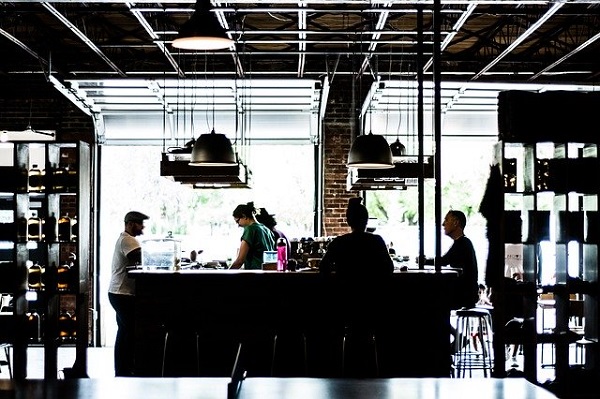
U.S., April 4, 2020 (420 INTEL)- Over the years, the relationship between the cannabis industry and the restaurant industry has been a tumultuous one, to say the least. I was living in Colorado right after legalization and remember having conversations with restaurant industry friends about how all of the new positions opening up in the cannabis industry were causing issues for their industry.
“Restaurants were struggling with what was effectively negative fifteen percent unemployment. Qualified cooks could walk across the street and get a fifty cent per hour raise, and when cannabis called, they were getting a two to three dollar per hour raise,” recalls Kevin Burke, General Manager of Denver based restaurant Morin. Burke admits that the situation ultimately helped the restaurant industry identify some shortcomings and helped to make conditions better for employees as a result. “It forced restaurants to change for the better in my opinion,” he concedes.
In response to the COVID-19 pandemic, it appears that the cannabis industry is once again lending restaurant employees a hand.
The tables have turned
As the cannabis industry sees a surge in demand, restaurants are feeling the pains of social isolation and safe-at-home policies. California, Florida, New Jersey, and Massachusetts are just a few of the states where regulators have declared access to cannabis an “essential service” allowing retailers to remain operational; a trend that we are seeing more and more across the US and Canada. In recent weeks New York has seen a 50 percent increase in demand for cannabis and Blackbird (a cannabis delivery company based in Nevada) has reported a 400 percent increase in delivery orders. All of this is to say that the cannabis industry has proven itself to be countercyclical, and maybe even recession-proof, putting the industry and the people involved in a position to help at a time when it is needed most.
And many of them are stepping up the challenge, hiring out-of-work restaurant workers. I reached out to Toby Ripsom, Co-Founder of Veritas Cannabis in Colorado, and asked him about the current staffing conditions in light of the combination of pandemic and surge in demand. “When we sat down as a company to update our HR policies in light of sick days piling up, we wanted to take care of our employees through it, but also became attuned of an upcoming struggle to maintain capacity” recalls Ripsom. Fortunately, the team saw an opportunity to help disproportionately affected segments of the community during this time. “My partner Mike is friendly with local restaurateur Max MacKissock. Max was sharing with him how he was losing so many amazing people with the impending closures afoot. Mike brought that to the rest of ownership, and we filled a void.”
Overcoming regulations
While, on the surface, this seems like a perfect storm of opportunity I could not help but wonder how this could happen in practice given that Colorado has put in place very strict regulations about certifying each and every employee working in the cannabis industry. This was a concern shared by Burke when we first chatted. “There’s always the burden of regulation, getting certified, making sure that the community that is working in the industry knows best practices… It’s unfortunate that the regulation and bureaucracy hasn’t been updated to anticipate surges in capacity,” he says. Fortunately, it appears the regulators have managed to get ahead of the issue. Ripsom reassured me that this red-tape laden system has improved for the better in light of current conditions stating “The Colorado Marijuana Enforcement Division made gaining a badge an expedited online, process. It was previously an in-person application and a tougher hurdle, logistically speaking. The State has been wonderful through this hardship!”. So, it would appear there is indeed an opportunity for those who need it most.
It is a difficult time for us all right now but if history has shown us anything it is that change comes quickly in difficult times. I hope that this newfound respect for cannabis as an essential service is a change that we won’t soon forget. I hope that in the days after this pandemic we come to understand how much this plant helped people get through difficult times whether by providing a respite from anxiety, helping to create jobs at a time when they are needed most or by providing tax revenue for states that are going to need it more than ever. I hope the change is contagious and that more states and countries realize how much there is to be gained by having an open mind about the good that legalization brings.
I hope the future brings more collaboration between the cannabis and foodservice industries. This is a hope shared by Burke. “I would like to see a greater increase in cooperation between the two industries,” he says. “I would love to see some of the thoughts and procedures of hospitality transition to training bud-tenders and sales teams to better serve their clients.”
Despite the rocky beginnings of this relationship it is inspiring to watch these two industries come together to weather the storm. Now, more than ever, this is the sort of innovation we really need.
 Investment value finders Investment value finders
Investment value finders Investment value finders



